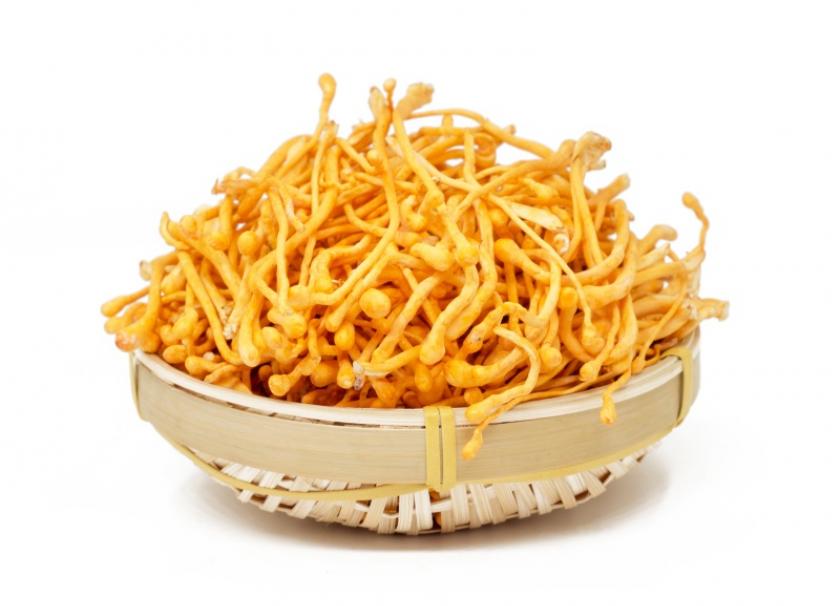
Mushrooms for wellness
You may have heard about the fascinating discovery that trees can communicate with each other. What’s the secret? The mycelia - tiny strands of fungus - in the soil form a vast underground network through which trees send chemical signals to their neighbors.
The mycelia differs from the fruiting body of the mushroom, which is the reproductive component that contains spores and is thought to be higher in Beta Glucans.
If fungus can do that for trees, what benefits can we as humans get from mushrooms? Mushroom teas and other fungal supplements have become more widespread and mostly used for boosting the immune system.*
Lucky for us in the Pacific Northwest, we have access to some of the best mushrooms in the country - in fact, many of the mushroom products we offer are wild-crafted right here in Oregon!
Below is a list of some of the most common medicinal mushrooms and the benefits they may offer to the individual.
As with all supplements, check with your doctor before you start using any medicinal mushroom products. Some mushrooms may have adverse interactions with other medicine, or come with unwanted side effects.
Reishi
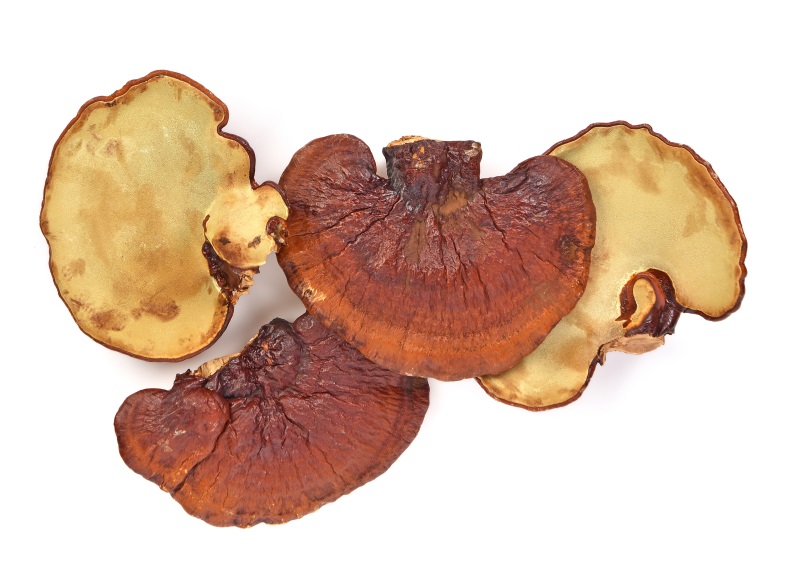
This mushroom has been revered for centuries in Asia. Historically it is a very rare mushroom to find in the wild - scientists estimate that out of every 10,000 trees where reishi could grow, you’ll only find three specimens. Thankfully, the mushroom can now be cultivated on a larger scale using organic substrates.
Generally, reishi is considered an immune system booster and provides overall wellness support*, promoting cardiovascular system health* and the body's ability to adapt to stress*.
Raw or dried reishi can be boiled into a tea. Most reishi supplements come in a tea, tincture or powder (encapsulated or loose) form.
Chaga
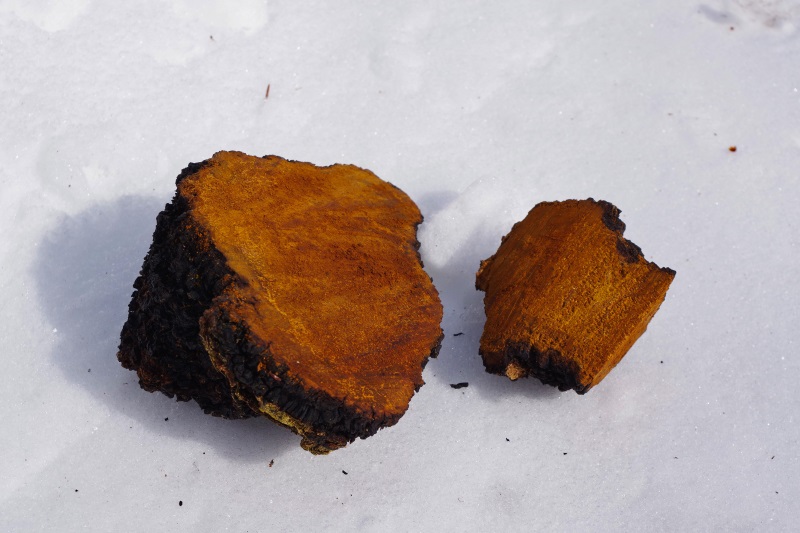
Chaga may not be the most beautiful mushroom on this list, but it has one of the oldest histories. Chaga is mostly found growing on birch trees (which is why it has such a long history in Russia), though it grows on other types of trees, as a big ‘conk’ growth on the outside of the tree. Commercial cultivation of chaga has been successful; however there have been chemical differences observed between wild and cultivated varieties.
Generally, chaga is known to be filled with antioxidants and is an overall immune system booster*.
Chaga is powdered and taken as a tea (the taste is often compared to an earthy coffee), or consumed in a capsule or tincture form.
Cordyceps
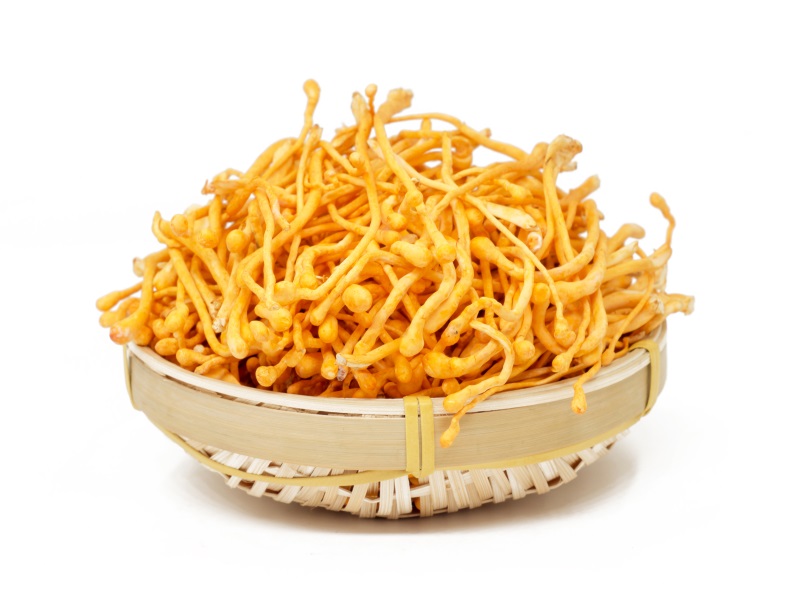
This is the most ‘sci-fi’ of all the mushrooms: several of the 400+ species are actually parasitic. Some modern cordyceps cultivation is a vegan process without needing any living hosts. Cordyceps (Cordyceps militaris) has been traditionally used in Asia for strenuous, high altitude activities and as an immune tonic.* Physical fitness enthusiasts and professional athletes have discovered that cordyceps may have the effect of increased oxygen uptake, supporting higher endurance levels.* People have also found that cordyceps supports healthy libido* and kidney function*.
Cordyceps is consumed traditionally as a raw, dried supplement to soups or stews. In powdered form it is taken as a tea, or in capsules or tincture form.
Lion’s Mane
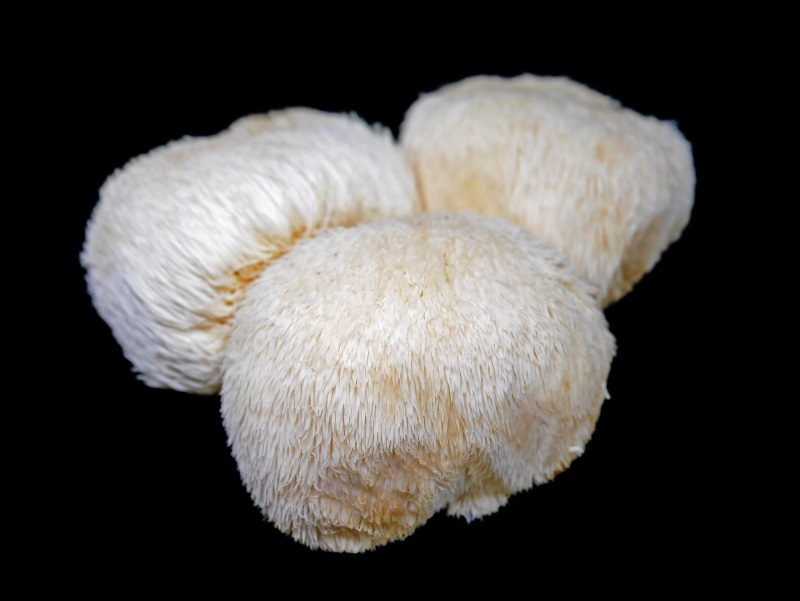
This is one of the most unique looking mushrooms: long tendrils hang from the main fruiting body, creating hundreds of mushroom 'icicles.' This bushy appearance gives the mushroom its common name.
Lion’s mane has been found to be helpful in the following ways: mental clarity, focus and memory in aiding overall cognitive function*; provides immune and nervous system support.*
Lion’s mane is most often consumed as a powder in tea or capsule form, or in a concentrated, standardized extract.
Turkey Tail
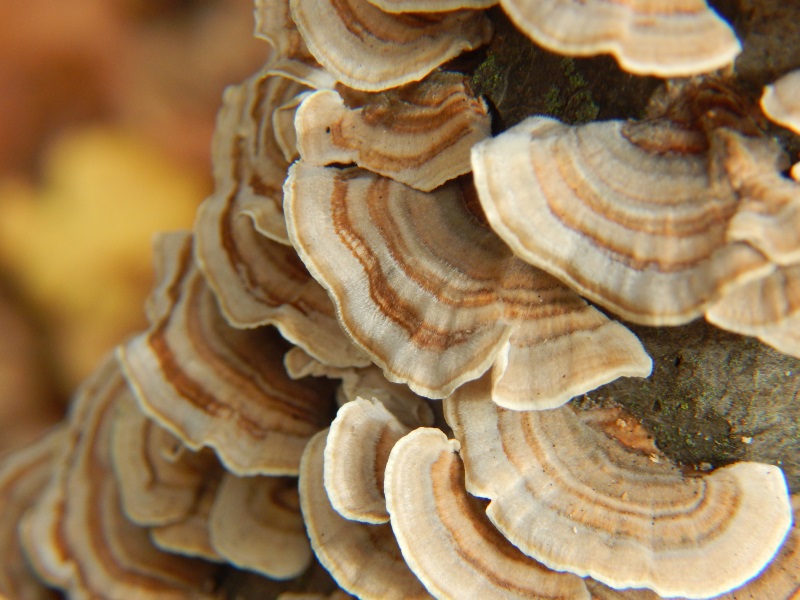
This pretty mushroom is named after the resemblance of the fruiting body to a wild turkey’s tail. Research shows this mushroom has been used medicinally since around 1368 by the Ming Dynasty.
Turkey Tail is an excellent source of cellular nutrients*, providing immune system support.*
Turkey tail is edible but quite chewy; most often it is consumed as a tea, or powdered capsule form.
Other beneficial mushrooms worth exploring:
Maitake
Enokitake
Shiitake
*These statements have not been evaluated by the Food and Drug Administration. This product is not intended to diagnose, treat, cure or prevent any disease.
More Co-op News

April Change for Good: ScienceWorks
ScienceWorks: Growing Sustainably, Connecting Community

March Change for Good: Parker House Project
Homelessness remains a serious issue in Southern Oregon, and women—especially single women and mothers with children—face unique challenges when seeking shelter and stability. That’s where Parker House Project comes in.

February Change for Good: BASE Southern Oregon
This February, Ashland Food Co-op is proud to support BASE Southern Oregon as our Change for Good partner! BASE (Black Alliance & Social Empowerment) is a nonprofit dedicated to uplifting and empowering Black residents in Southern Oregon through events, resources, and advocacy.
Your donations at the register all month long will help BASE continue their impactful work, and there are plenty of ways to get involved! Here’s what’s coming up:

January’s Change for Good Partner – Community Works
At Ashland Food Co-op, we’re thrilled to kick off the new year by supporting Community Works, our January Change for Good partner. This incredible organization is dedicated to empowering individuals affected by domestic and sexual violence through crisis support, safe housing, and community outreach. Community Works provides services that are free, confidential, and open to all genders, ensuring that no one faces these challenges alone.
Here’s how Community Works is making a difference and how you can get involved:

Ashland Food Co-op's December Change for Good Partner: Rogue Action Center
This December, Ashland Food Co-op is proud to partner with Rogue Action Center (RAC) as part of their Change for Good initiative. RAC is dedicated to cultivating organizing power and leadership to create a more just and thriving Southern Oregon. Their mission focuses on building community power for Housing Justice, Racial Justice, and Queer & Trans Liberation. They achieve this through a combination of base building, youth-centered leadership development, coalition building, and advocacy campaigns aimed at transforming societal rules.

Our November Change for Good Partner: SOESD Indian Education Fund
Each month, the Ashland Food Co-op partners with a local nonprofit through our Change for Good program. This November, we are proud to feature the important work of the Southern Oregon Indian Education Department (SOESD) Indian Education Fund.
The Change for Good program allows our shoppers to round up their total at the register, with the extra change going to support a different local nonprofit each month. The funds collected make a meaningful difference for these organizations and the communities they serve.

Save on Field Day Items and Support Native Foodways
This November, get ready for gatherings with friends and family with big savings on all Field Day products at your co-op. Save on more than 270 Field Day items — from maple syrup to wild-caught tuna to paper towels — from Oct. 30 through Dec. 3. Field Day is our value brand that offers high-quality, delicious food and household products at more affordable prices every day through Co+op Basics, making this savings event even more spectacular. Our lowest prices will be even lower!

Indigenous Peoples’ Day: Honoring Native Heritage
Indigenous Peoples' Day is a holiday that celebrates and honors Native American peoples and commemorates their histories and cultures. It's observed on the second Monday in October, coinciding with the federal holiday of Columbus Day in the United States.
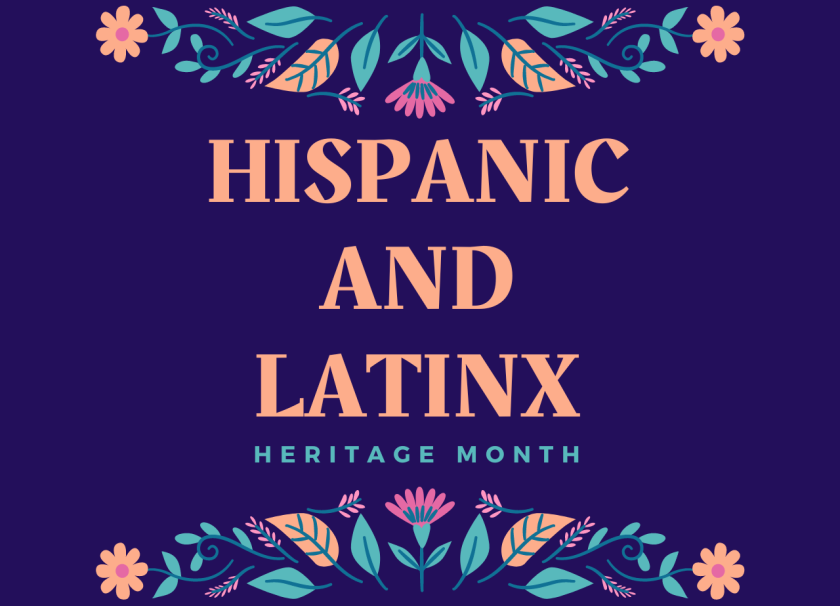
Celebrating Hispanic and Latinx Heritage
September 15th marks the beginning of Hispanic Heritage Month, a time to recognize and celebrate the contributions, diverse cultures, and rich histories of Americans with ancestry from Spain, Mexico, the Caribbean, and Central and South America.
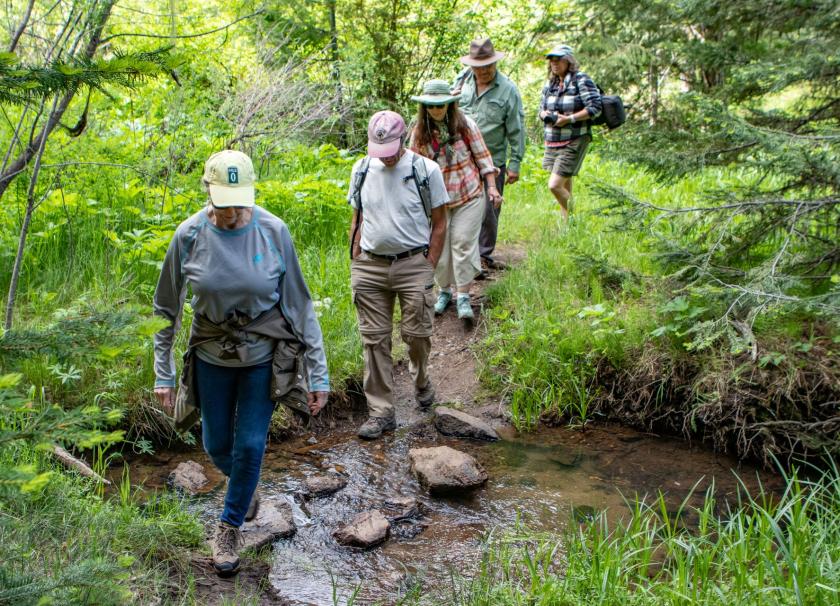
September Change for Good Partner: Friends of Cascade-Siskiyou National Monument
At Ashland Food Co-op, our commitment to community and sustainability is at the heart of everything we do. This September, we’re proud to shine a spotlight on our Change for Good partner, Friends of Cascade-Siskiyou National Monument (Friends of CSNM). This dedicated organization works tirelessly to protect, restore, and conserve the natural beauty of the Cascade-Siskiyou National Monument through service, advocacy, and education.
Stewardship in Action: Restoring Riparian Areas

August Change for Good Partner: Rogue River Watershed Council
At Ashland Food Co-op, we are dedicated to fostering a vibrant and sustainable community. Each month, our Change for Good program partners with a local organization to support their mission and amplify their impact. For August, we are thrilled to announce our partnership with the Rogue River Watershed Council (RRWC).
Who is the Rogue River Watershed Council?

Disability Pride Month
Disability Pride Month, first celebrated in 1990, commemorates the signing of the Americans with Disabilities Act (ADA). This landmark legislation prohibits discrimination based on disability and ensures equal opportunities in all areas of public life. Disability Pride Month promotes visibility and mainstream awareness of the positive pride felt by people with disabilities.

July Change for Good Partner: Peace House
Meet our July Change for Good partner - Peace House! This incredible organization has been a cornerstone of our community, dedicated to building a culture of peace through compassionate actions that support human rights and justice for all.
About Peace House
Peace House has a broad and impactful mission. Their work spans several critical areas, including:

Supporting Stream Smart: Our June Change for Good Partner
We are delighted to announce our June Change for Good partner, Stream Smart, a remarkable local organization dedicated to improving the health of our streams and rivers.
What is Stream Smart?

Co-op, Community and Coffee
We are thrilled to announce that the Ashland Food Co-op has purchased the Rogue Valley Roasting Company (RoCo) from longtime owner, Dustin Way.
